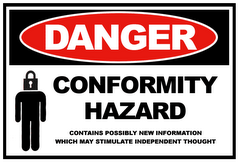Destructive Patterns in Trading
Before we get into the topic of destructive trading, allow me to explain how psychologists assess whether or not a person has a problem with alcohol consumption. Here are ten questions that a professional might ask in order to assess any kind of substance use disorder, including alcohol abuse:
1) Have you found that your drinking is bringing unwanted, negative consequences?
3) Do you find you need to drink more just to get the good feeling?
4) Do you find that your personality changes when you drink excessively?
6) Do you find yourself drinking to feel good about yourself?
Now for the topic of destructive trading: Please answer the above questions, but substitute the word “trading” for “drinking”, and substitute the word “trade” for “drink”.
- Addictive traders need to trade; they have a passion for action and excitement.
- An addictive trader will not manage his risk. That is because risk is part of the high.
- An addictive trader will not stop trading, even when losing money. That is because action, not profit, is the goal.
- An addictive trader will cycle between periods of guilt and responsibility and periods of excess and irresponsibility.
- Good traders trade actively. Addictive traders overtrade.
If you see yourself in this profile, do the right thing, before your patterns ruin your career and harm those who depend on you. Get help. You can change. Your trading and your happiness lie in the balance.
Brett N. Steenbarger, Ph.D. is Director of Trader Development for Kingstree Trading, LLC in Chicago and Clinical Associate Professor of Psychiatry and Behavioral Sciences at SUNY Upstate Medical University in Syracuse, NY. He is also an active trader and writes occasional feature articles on market psychology for a variety of publications. The author of The Psychology of Trading (Wiley; January, 2003), Dr. Steenbarger has published over 50 peer-reviewed articles and book chapters on short-term approaches to behavioral change. His new, co-edited book The Art and Science of Brief Therapy is a core curricular text in psychiatry training programs. Many of Dr. Steenbarger’s articles and trading strategies are archived on his website, www.brettsteenbarger.com

No comments:
Post a Comment